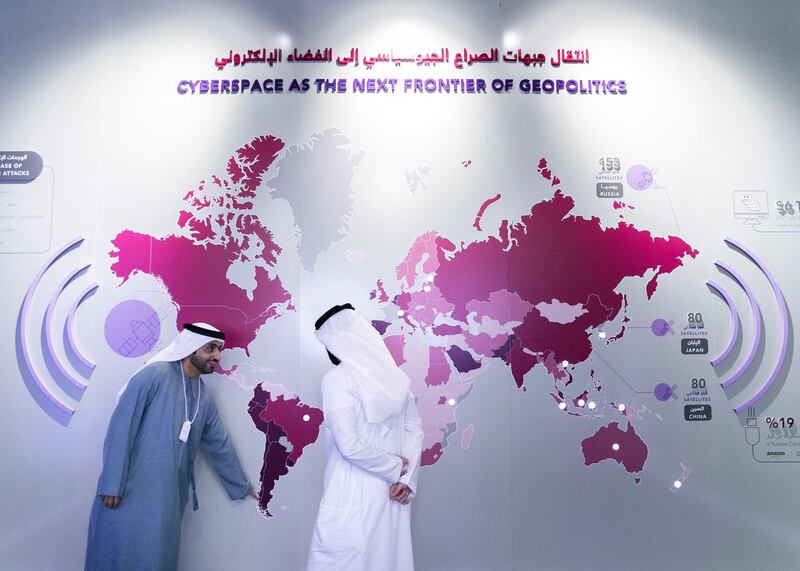The UAE has long been at the forefront of technological advancements. From being a hub for start-ups in the region to moving government services increasingly online; from embracing blockchain strategies to making strides in the field of AI; and from unveiling the largest 3D printed two-storey building on the planet to the advent of 5G networks, this country has steadily championed futuristic developments.
But the path of progress is always beset with challenges. And as we enter a new decade with the knowledge that cyber threats are getting only smarter, our focus on keeping ahead of the technology curve must remain keen.
Mohammad Al Gergawi, Minister of Cabinet Affairs and the Future, said on Monday that the Arab world is "on the verge of a new global economic reality". To face this, he said, the UAE must make its own advancements in technology. Speaking at the 12th Arab Strategy Forum, he warned that the alternative to not making those advancements would be to be left behind – and that scenario is never an option for this country.
Renowned for its endeavours to be a pioneer in the region, Dr Al Gergawi posed to his audience of government officials, academics and decision makers: “Do countries know that their sovereignty, their future and their information will be mortgaged to technologically superior nations if they do not take the initiative and move quickly towards the future?”
His remarks should serve as a reminder to all those with a stake in the future of the region to focus on the decade ahead and plan the work we have cut out for us.
The UAE, as a nation, has the unique advantage of access to data. We know from Omar Al Olama, the UAE’s Minister of State for Artificial Intelligence, that “no other country can compare” to the diverse dataset the UAE has because it is home to some 200 nationalities.
While of course safeguarding our privacy, data must be used in a way that further simplifies our lives and reduces the time taken on laborious paperwork. Many UAE residents have experienced the benefits of data integration whenever we have used e-gate cards at airports to be liberated from standing in long queues at immigration counters.
Earlier this week, in a bid to make it easier for residents to update paperwork for essential services, such as passport renewals, Saeed Al Mulla, executive director at Abu Dhabi Digital Authority, told The National: "Ideally, citizens should not interact with government" unless absolutely necessary. Besides echoing the sentiments of many residents, Mr Al Mulla was charting the authority's ambitions, a heartening indicator of the way forward.
Any country that prides itself on its digital reach and prowess must prioritise efficiency and merge it with automation to benefit its people. One outcome would be hours freed up that could enable a workforce to engage with other demands on their time.
Since 2018, Abu Dhabi has been working to bring resident-facing government services under one platform, called Tamm. This is another example of how technology can enable the most valuable resource – people – to take on other tasks that would subsequently spur the growth of a nation and propel it forward.





